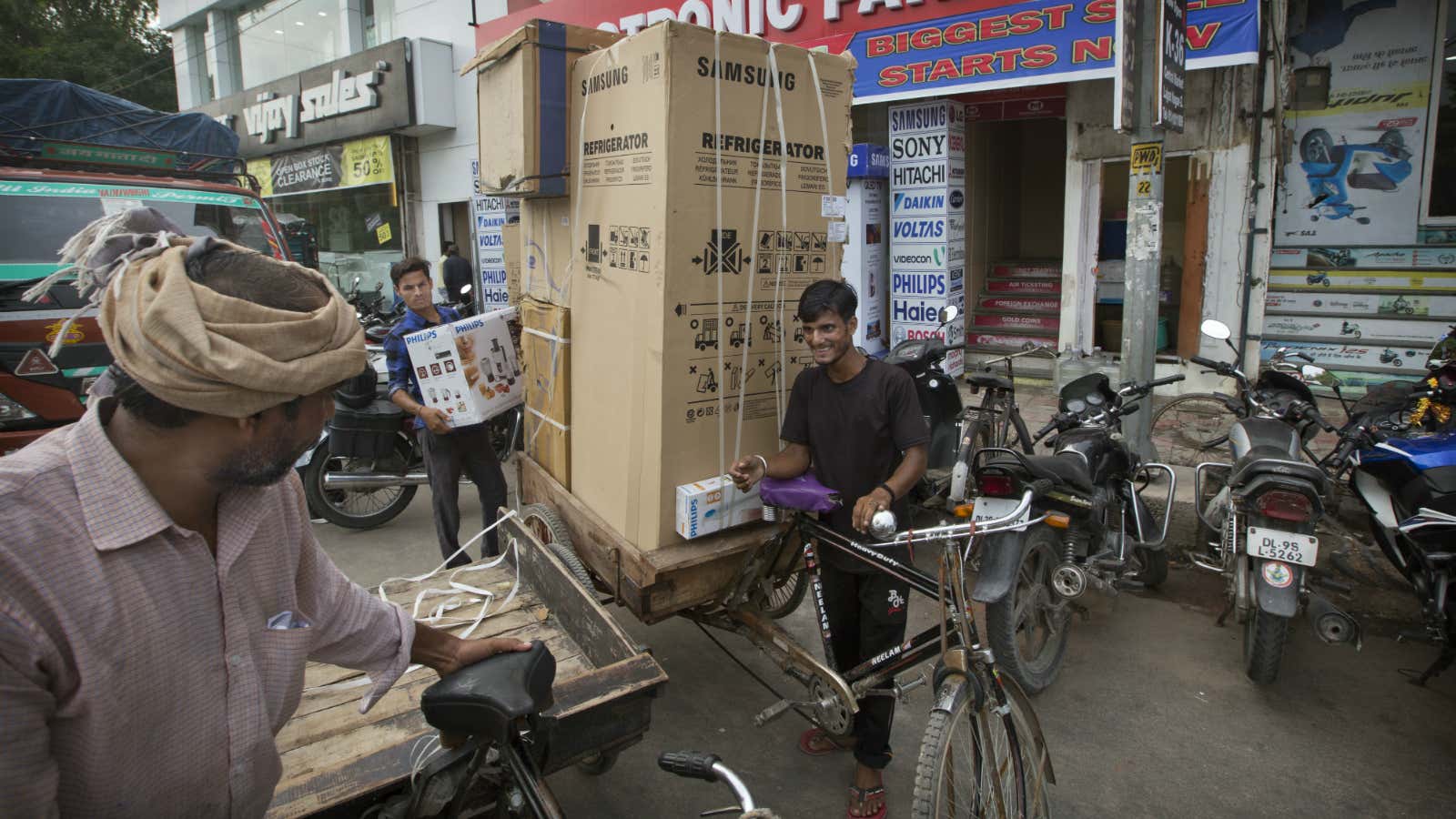India’s biggest festival season may not be all that cheerful this year for shoppers of imported goods.
Looking to lower its current account deficit (CAD)—the difference between the value of a country’s imports and exports—and manage a depreciating rupee, the Indian government has hiked import duties on 19 non-essential items. The new duties are applicable with immediate effect.
Air conditioners, household refrigerators, washing machines, footwear, speakers, tableware, kitchenware, and cut & polished diamonds are some of the goods that have come under the radar for a hike in import duties, a Sept. 26 statement from the finance ministry said. In the financial year 2017-2018, imports of these goods were valued at Rs86,000 crore ($11.8 billion).
Some items will now attract almost double the import duty than before. The rates for air conditioners, washing machines, and refrigerators (under 10 kg), for instance, have been raised to 20% from the previous 10%. Those on other categories like tyres, speakers, suitcases, and travel bags, too, have been hiked.
The government’s move is in line with its efforts to curb capital outflows.
Thanks to a rising import bill, India’s CAD widened to 2.4% of GDP in the June quarter of the current financial year. The move is also aimed at curtailing a depreciating rupee that has slipped over 11% since the beginning of the year.
Festive demand
The hike, especially on consumer durables, comes ahead of India’s key shopping season marked by major festivals like Navratri, Dussera, and Diwali. This is the time when shoppers stack up on essential goods and upgrade electronics.
The move has already prompted talks of price hikes by companies that rely on imports for high-end products.
A price hike across its range of air conditioners and high-end refrigerators is inevitable going forward, South Korea-based LG electronics told the Press Trust of India. The German shoemaker Puma, too, may increase prices 5% on a range of its imported footwear. After all, imported footwear now attracts a 25% duty, up from the earlier 20%.
